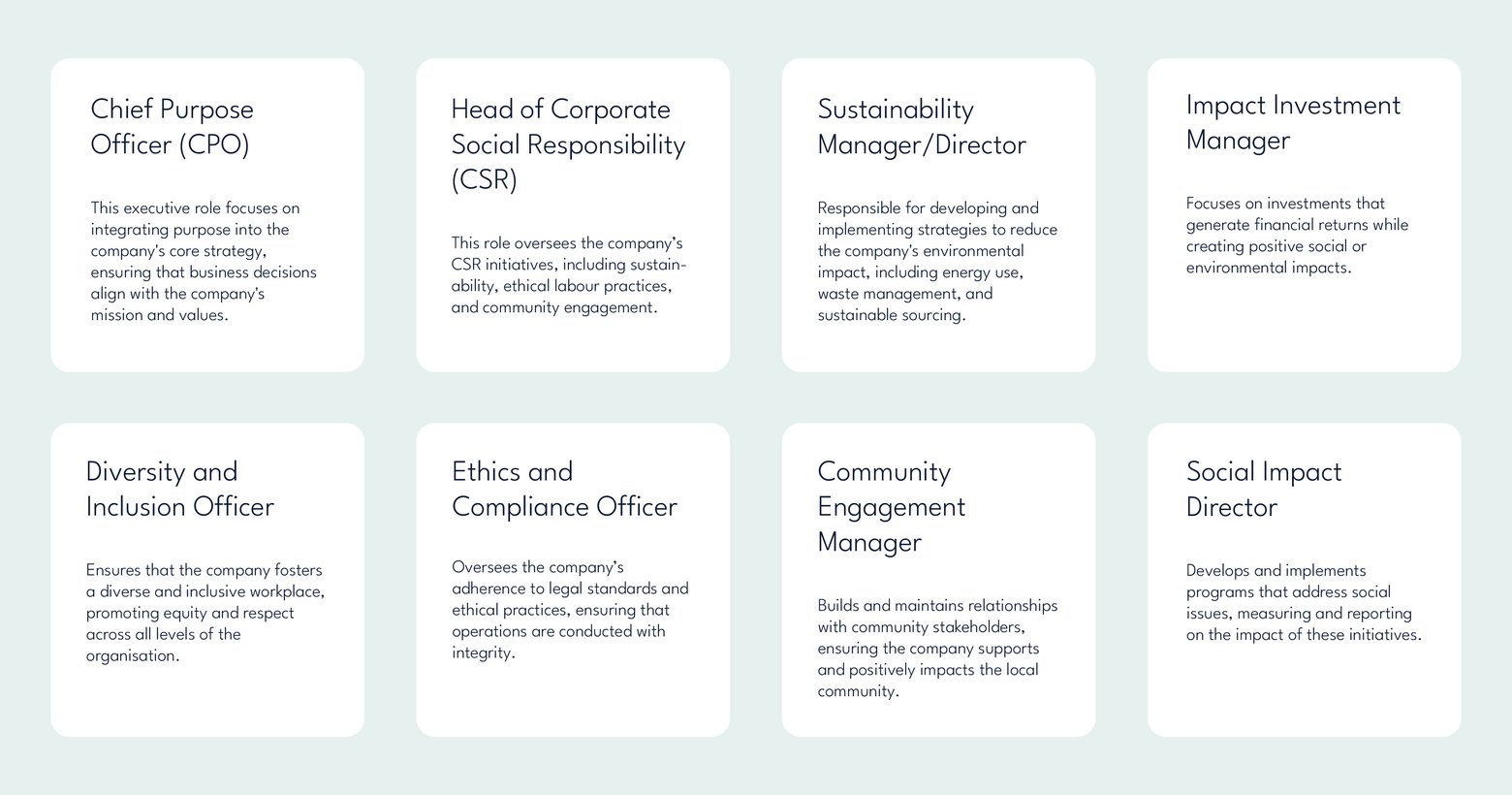Candidates Want Meaningful Work. How To Adopt A Purpose-Led Business Model

Every year for the last four years, we’ve surveyed our technology candidates on what matters most to them in life and work. This year, we surveyed over 900 candidates and 30.77% of them said that they wanted an employer who showed strong values and moral compass. This is an increase of 9.08% on the previous year (nothing to sneeze at!).
We’ll explore the broader trends leading a shift towards purpose-led business models and share the fundamentals for fostering purpose-alignment with employees and candidates.
In this article:
- What does for-purpose look like?
- What’s causing the shift towards purpose-led business models?
- What are the fundamentals of a purpose-led business?
What does for-purpose look like?
As B Corp explains it, purpose-led businesses work from a place of deep alignment, inspiration, and commitment to creating meaningful value for all stakeholders, including customers, workers, suppliers, shareholders, the broader community, and the environment.
Examples include:
- Thankyou donate profits to water, sanitation, food, and health programs in developing countries.
- Eco-friendly Who Gives A Crap donate fifty percent of profits to help build toilets and improve sanitation in developing countries.
- The Body Shop is committed to ethical and sustainable business practices that help reduce their environmental impact and make the world a fairer and more equitable place.
Importantly, profit and purpose co-exist.
What’s driving the shift towards purpose-led business models?
As our consumer awareness increases and corporate reporting becomes more stringent and transparent (such as gender pay gap reporting), companies are redefining their identities to align with social (and employee) expectations and address pressing global issues.
Here are some other trends indicating a shift towards purpose-led business models:
As a society, we’re demanding higher ethical standards
The Governance Institute of Australia’s Ethics Index 2023 revealed that the importance we place on ethics has risen to an all-time high (driven in large part by millennials). This increase in importance shows our expectations aren’t being met.
Not surprising, given so many professions were put through the wringer during the pandemic, with mass layoffs followed by mass rehiring and mouth-wateringly high counteroffers, followed by mass layoffs again as economies stall and cost of living spikes. There’s little wonder why employees are growing more sensitive to pay disparities and demanding workloads that are driving many to burnout if it seems their employer chooses profit over their own wellbeing.
New roles are emerging
It’s not just AI that’s generating new job titles and responsibilities. These emerging roles in purpose-led organisations reflect the growing emphasis on aligning business strategies with broader social, environmental, and ethical goals:

Purpose-aligned employees are staying longer (a total boon for business)
Candidates are looking for meaning and purpose in their work. We know that 30.77% of respondents in our 2024 Tech Talent Outlook say they want an employer who shows strong values and a moral compass. Tellingly, 39.89% said they changed jobs because there was a lack of sense of purpose, and 35.5% said they changed jobs due to a mismatch between their personal values and those of the organisation (48.81% for executives).
Globally, a 2020 Deloitte report says purpose-driven companies have 40% higher levels of workforce retention than other organisations. Deloitte also finds that employees who experience internal alignment between purpose, culture and leadership behaviours, and who understand how their day-to-day work relates to their organisation’s purpose ambitions show higher levels of motivation and trust, and a lower desire to quit their job.
In a nutshell: Purpose-alignment is a big deal for employees and job seekers, and organisations are taking notice.
What are the fundamentals of a purpose-led business?
Contrary to traditional beliefs, for-purpose doesn’t mean at the expense of profit. The real magic happens when employees clearly understand the larger impact and value of the work being done and how they are contributing.
That being the case, here are the fundamentals that help employees connect with purpose:
Accountability
Purpose-driven organisations are accountable and transparent. You’ll see more open communication and feedback channels, as well as candid tales of successes, failures, challenges, and triumphs on the lived path towards achieving purpose. This might also include more transparent reporting on goals and objectives. For example, reducing the gender pay gap, tracking donations, reducing carbon emissions/achieving net zero.
Purpose is felt in every interaction (it’s not just empty words)
Purpose must be put into aligned actions. Executive ownership is essential, so the commitment to purpose is seen and experienced in the everyday activities and decision-making across the business. For example, Zappos’ purpose is to provide the best customer service possible: to live and deliver WOW in a long-term sustainable way. They achieve this through open communication, values- and purpose-aligned recruitment processes, emphasis on the customer experience, and their Zappos for Good campaign (to name but a few).
Purpose-aligned business decisions
Decision-making must consider how short and long-term business goals impact stakeholders, markets, environment, employees, and the larger community. For example, if supporting local communities is part of the purpose, then we might see fair trade and labour policies in place. Or, if reducing the gender pay gap and creating a fairer, more equitable workplace is part of the purpose, we might see equitable recruitment and hiring policies and/or community group partnerships that support this objective.
TL; DR - Purpose gets people excited for work on Mondays
Candidates don’t need to work for a not-for-profit to be motivated by a purpose they can fully resonate with. By helping your employees uncover their purpose, you can fuel their passion, maintain their motivation and create more engaged and higher performing people.
For our team at Talenza, we overhauled the traditional recruitment process and infused a commitment to help people find meaningful work and support them on their career journey every way we can. Because we think everyone should feel excited to get out of bed on Mondays!
Purpose is merely the art of aligning our work with a meaningful mission or a higher goal that goes beyond making bank. Candidates are seeking it, employees are thriving with it, and talent-savvy organisations are benefitting.
Want to see what else is lighting up candidates in the current job market?
Download our 2024 Tech Talent Outlook.